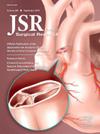术中主治医师领导能力的定性评估与描述
IF 1.8
3区 医学
Q2 SURGERY
引用次数: 0
摘要
领导能力是主治外科医生在临床环境中必须运用的非技术技能之一。有效的领导能力是外科医生领导团队、完成手术目标的基础。本研究旨在揭示来自美国学术医疗中心的主治外科医生如何在手术室(OR)中应用领导技能。方法本定性研究于2022年2 - 8月在某城市学术性医疗中心进行。数据收集通过非参与性观察主治外科医生与培训外科医生和其他外科团队成员在手术室进行手术。观察手术团队在整个病人在手术室的时间。研究小组的成员做了现场笔记,记录主治外科医生与其领导技能相关的行为。我们使用归纳和演绎主题分析,使用外科医生的领导能力清单框架。我们使用MAXQDA进行数据组织和检索。结果本组共进行了179次观察,涉及27名正在培训的外科医生,与来自10个不同普通外科亚专科的45名主治外科医生进行了手术,共计351小时。我们的研究结果强调了主治外科医生的领导技能是如何跨越外科医生领导能力清单框架中概述的各个领域的。这些技能包括确保资源的可用性,做出及时的决定,熟练地委派任务,提供明确的指示,提供教育机会,关注受训者的需求,分享关键信息,以及应对具有挑战性的情况。结论主治外科医生运用领导技能来协调外科团队成员的活动,并在手术室中对受训者进行教育。未来的研究应探讨主治医生的领导技能对患者和培训生学习结果的影响。本文章由计算机程序翻译,如有差异,请以英文原文为准。
Qualitative Assessment and Description of Intraoperative Attending Surgeons' Leadership Skills
Introduction
Leadership is one of the nontechnical skills that attending surgeons must apply in clinical settings. Effective leadership skills are fundamental for surgeons to lead the team and accomplish the goals of surgery. This study aimed to uncover how attending surgeons from a United States academic medical center apply leadership skills in the operating room (OR).
Methods
This qualitative study was conducted at an urban academic medical center from February to August 2022. Data were collected through nonparticipant observations of the attending surgeons operating with surgeons in training, and other surgical team members in the OR. Surgical teams were observed during the entire patient's time in the OR. Members of the study team took field notes to document the attending surgeons' behaviors related to their leadership skills. We used inductive and deductive thematic analysis using the Surgeons' Leadership Inventory framework. We used MAXQDA for data organization and retrieval.
Results
We conducted 179 observations involving 27 surgeons in training, operating with 45 attending surgeons from ten different general surgery subspecialties for a total of 351 hs. Our findings highlighted how leadership skills employed by attending surgeons spanned various domains outlined in the Surgeons Leadership Inventory framework. These skills encompassed ensuring resource availability, making timely decisions, delegating tasks proficiently, providing clear instructions, offering educational opportunities, attending to trainees' needs, sharing crucial information, and navigating challenging situations.
Conclusions
Attending surgeons applied leadership skills to orchestrate the activities of surgical team members and educate trainees in the OR. Future studies should investigate the effect of attending surgeons' leadership skills on patient's and trainee learning outcomes.
求助全文
通过发布文献求助,成功后即可免费获取论文全文。
去求助
来源期刊
CiteScore
3.90
自引率
4.50%
发文量
627
审稿时长
138 days
期刊介绍:
The Journal of Surgical Research: Clinical and Laboratory Investigation publishes original articles concerned with clinical and laboratory investigations relevant to surgical practice and teaching. The journal emphasizes reports of clinical investigations or fundamental research bearing directly on surgical management that will be of general interest to a broad range of surgeons and surgical researchers. The articles presented need not have been the products of surgeons or of surgical laboratories.
The Journal of Surgical Research also features review articles and special articles relating to educational, research, or social issues of interest to the academic surgical community.

 求助内容:
求助内容: 应助结果提醒方式:
应助结果提醒方式:


